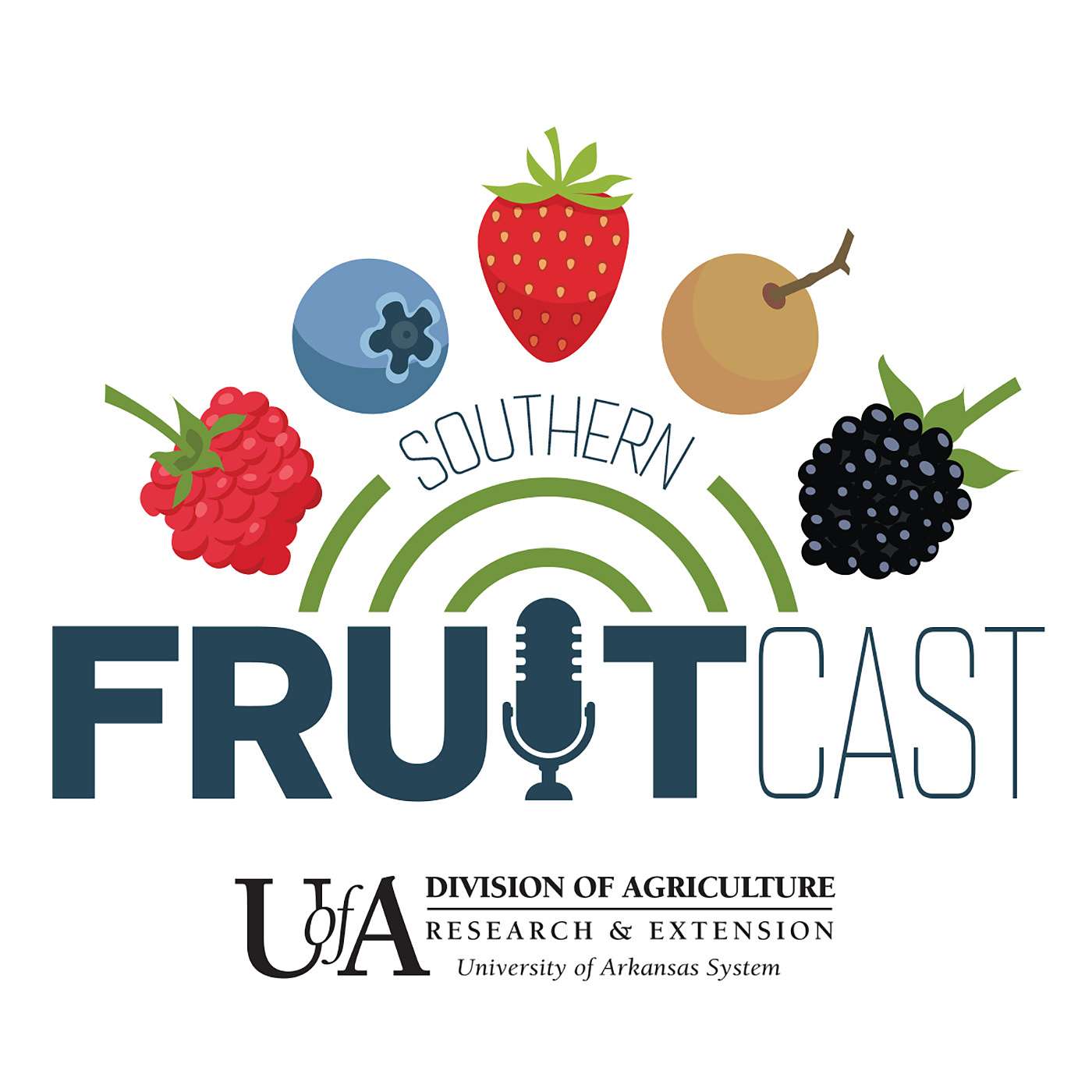 Ep. 020 - PGRs and other Techniques to Manage Blackberry Growth with Dr. Tom Kon (7/17/2024)
33:59
Ep. 020 - PGRs and other Techniques to Manage Blackberry Growth with Dr. Tom Kon (7/17/2024)
33:59
 Ep. 019 - Blackberry Fusarium Wilt with Dr. Sara Villani (7/15/2024)
36:21
Ep. 019 - Blackberry Fusarium Wilt with Dr. Sara Villani (7/15/2024)
36:21
 EP. 018 – Post Harvest Handling of Blackberry and Other Small Fruits with Penny Perkins-Veazie (9/28/2023)
32:28
EP. 018 – Post Harvest Handling of Blackberry and Other Small Fruits with Penny Perkins-Veazie (9/28/2023)
32:28
 Ep. 017 - Cane Blight and Other Blackberry Diseases with Dr. Jonathan Oliver (9/7/2023)
32:22
Ep. 017 - Cane Blight and Other Blackberry Diseases with Dr. Jonathan Oliver (9/7/2023)
32:22
 Ep. 016 - All about Muscadines with Dr. Margaret Worthington (8/31/2022)
34:41
Ep. 016 - All about Muscadines with Dr. Margaret Worthington (8/31/2022)
34:41
 Ep. 015 – Mating Disruption and other Chlorpyrifos Alternatives with Dr. Doug Pfeiffer (12/10/2021)
35:17
Ep. 015 – Mating Disruption and other Chlorpyrifos Alternatives with Dr. Doug Pfeiffer (12/10/2021)
35:17
 Ep. 014 - Arkansas Quality Wine with Dr. Renee Threlfall and Amanda Fleming (7/30/2021)
30:35
Ep. 014 - Arkansas Quality Wine with Dr. Renee Threlfall and Amanda Fleming (7/30/2021)
30:35
 Ep. 013 - Strawberry Fertility and Disease Management with Dr. Jayesh Samtani
31:48
Ep. 013 - Strawberry Fertility and Disease Management with Dr. Jayesh Samtani
31:48
 Ep. 012 - Spotted Wing Drosophila with Dr. Hannah Burrack (4/30/2021)
52:04
Ep. 012 - Spotted Wing Drosophila with Dr. Hannah Burrack (4/30/2021)
52:04
 Ep. 011 - Fungicide Resistance Testing with Dr. Emran Ali (03/18/2021)
16:56
Ep. 011 - Fungicide Resistance Testing with Dr. Emran Ali (03/18/2021)
16:56
 Ep. 010 - Small Fruit Production in Louisiana with Mary Helen Ferguson and Kiki Fontenot
40:38
Ep. 010 - Small Fruit Production in Louisiana with Mary Helen Ferguson and Kiki Fontenot
40:38
 Ep. 009 - Marketing Small Fruits with Ekko Barnhill (02/19/2021)
28:55
Ep. 009 - Marketing Small Fruits with Ekko Barnhill (02/19/2021)
28:55
 Ep. 008 - Substrate Production of Small Fruits with Dr. Ryan Dickson (11/24/2020)
36:06
Ep. 008 - Substrate Production of Small Fruits with Dr. Ryan Dickson (11/24/2020)
36:06
 Ep. 007 Blueberry Planting Rejuvenation and White Drupelet Disorder of Blackberry with Dr. Eric Stafne (11/19/2020)
42:14
Ep. 007 Blueberry Planting Rejuvenation and White Drupelet Disorder of Blackberry with Dr. Eric Stafne (11/19/2020)
42:14
 Ep. 006 Southeast Strawberry Disease Management with Guido Schnabel (10/1/2020)
44:34
Ep. 006 Southeast Strawberry Disease Management with Guido Schnabel (10/1/2020)
44:34
 Ep. 005 - Farm-to-School Marketing and Strawberries with Randy Arnold (9/22/2020)
21:10
Ep. 005 - Farm-to-School Marketing and Strawberries with Randy Arnold (9/22/2020)
21:10
 Ep. 004 - Muscadine and Blackberry Production with Ervin Lineberger (7/30/2020)
31:48
Ep. 004 - Muscadine and Blackberry Production with Ervin Lineberger (7/30/2020)
31:48
 Ep. 003 - Strawberry Cultivar Selection and NC State Small Fruit Breeding with Gina Fernandez (7-2-2020)
19:26
Ep. 003 - Strawberry Cultivar Selection and NC State Small Fruit Breeding with Gina Fernandez (7-2-2020)
19:26
 Ep. 002 - Southeast Grape Disease Management with Phil Brannen
50:46
Ep. 002 - Southeast Grape Disease Management with Phil Brannen
50:46
 Ep. 001 - Inaugural Southern Fruitcast featuring Dr. John Clark (5-27-2020)
1:15:43
Ep. 001 - Inaugural Southern Fruitcast featuring Dr. John Clark (5-27-2020)
1:15:43
